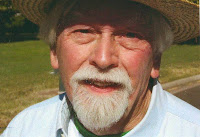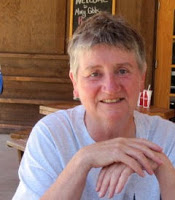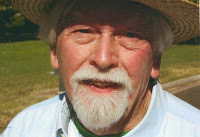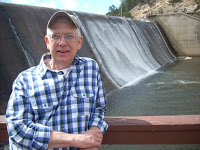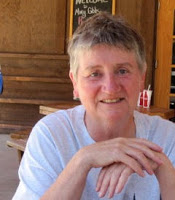A person’s sense of security or insecurity may be based upon realistic concerns, concerns such as feeling the need to minimize the possibility of home-break-in, avoiding dangerous locales within cities, or perhaps concerns about local terrorism. In many cases, there are some rational steps people possibly can take to provide a greater sense of security.
There is for me, however, a concern (and this is a concern that progressively has worried me over the years), about a more subtle and perhaps even more dangerous sense of insecurity that plagues certain kinds of people and, consequently, society as a whole. That chronic sense of insecurity may warp those people’s emotions and thinking, resulting in actions that are harmful to others and to the society in which they live.
As I have stated several times earlier, there are various ways that people feel, think, and behave, part of that being based upon what they may have learned from their life-experiences, plus part of that literally based upon how their brains are structured physically. For example, everyone is a mixture of rational thinking and emotions. Research shows, however, that there always has been a group of people who appear to be much more prone to emotional responses and less rational, open-minded thinking. As a potentially terrible consequence, such people are more easily manipulated by devious people with harmful intentions. Also, they become very tribal, work together, often with anger and “fire in the belly,” making them too often more politically effective than more cerebral, better informed people.
Manipulating people’s fear and sense of insecurity has been around ever since the creation of humankind, and I have seen much of that over the last several decades here in America, notably in politics. Whereas it appears to me that one of the major political parties contains a good percentage of people who are open-minded, search for facts, try to think rationally about them, and to form logical, constructive conclusions, there is another major party, with much evidence I might add, that contains a large percentage of people who are more prone to fear, hate, and anger. Consequently, some politicians have mastered the craft of manipulating these people to side with them, to support them, even to the extent that the people vote against their own best interests. These voters not only form opinions that are against what is good for them and society as a whole, but they do so with great emotion, even abject anger against other persons who have formed more rational opinions.
I always have been a student of history, which has taught me lessons about human thinking and behavior. One of the most striking lessons I have learned is from a very revealing quotation from one of the most notorious individuals of modern history, a quotation and lesson that certainly are a warning to what is occurring today here in America. What this person said, along with my comments about each part of it, should ring an alarm bell.
This monster of history was asked how he was able to so control the masses of people in his country. To start with, he maintained that most people are ignorant. Now immediately, some of us might respond that this assertion is an overstatement; yet I ask everyone to recall how ignorant people were shown to be when Jay Leno went on the street and asked simple questions of many people, including graduate students, teachers, businessmen, and even government officials. Need I also mention the recent Republican so-called debates?
Even more harshly, the political leader stated that most people are stupid. Now, I know that this term too frequently is used simply as a slur to denigrate people, yet I have noted for many years that certain people do seem to lack the ability to think rationally. I occasionally over thirty years have tested an acquaintance of mine to ascertain whether or not he can follow simple processes of logical thinking; and, truthfully, he never has. He always responds in irrational, emotional ways, so much so that his thinking is very distorted. I recall in the year 2000 during the Presidential election, this individual actually wrote a letter to the Republican National Committee stating, “If Al Gore steals this election, I volunteer to lead the first tanks into Washington.” In addition to his statement being dramatically irrational, it is quite ironic, now that there is strong evidence that the theft actually was the other way around.
The notorious quotation goes on to state that all the leader had to do was to employ (first of all) fear, and we have witnessed in the U.S. how effective fear-mongering by certain political leaders has been over several decades, stirring up the citizens and priming them for manipulation. “Let us political leaders, along with the top one percent, do whatever we want, and we will make you secure.”
Secondly, he also utilized hate by demonizing certain peoples based upon race, religion, sexual orientation, political beliefs, etc.; and those persons today who are easy prey to such manipulation increasingly express opinions and beliefs that can be quite shocking and unsettling to those of us who have more empathetic, civilized beliefs. In this way, the manipulators can misdirect the public’s attention away from the real problems and constructive solutions by blaming everything on other groups unlike themselves.
And thirdly, he employed anger, and we have seen both verbal and physical violence as a result. This certainly was horrifyingly true in his time and his country. Here in the U.S. in the recent Republican debates and town-hall meetings, we have seen anger too often expressed among the candidates and audience. Several times now in Donald Trump rallies, we even saw violence against dissenters and journalists. One Trump supporter even shouted out, “Sieg heil!” Such violence can spread throughout society as a whole, rather like metastasized cancer. For example, at the beginning of the 20th century, one of the two most spoken languages in the U.S. was German, the language of a large portion of our emigres, along with it being the language of medicine and science. Yet, with the advent of the Great War, suddenly German-Americans were hated. The German language unthinkingly was banned in all schools. Shop-keepers of German heritage had their windows smashed, and others were physically beaten. During World War II, many innocent Japanese, Italian, and German families were sent to prison camps, the German families being the last to be released.
Now we see such fear, hate, and anger being directed toward Mexicans and Muslims, among others. (I suppose certain people always will fear and hate homosexuals). My belief is that the more knowledgeable one becomes, the more rational one’s thinking, the more empathetic and understanding of others, then the more secure one becomes in his own mind. A lack of a sense of security too often is within people’s minds, not necessarily within the real world.
© 02 March 2016
About the Author
I have had a life-long fascination with people and their life stories. I also realize that, although my own life has not brought me particular fame or fortune, I too have had some noteworthy experiences and, at times, unusual ones. Since I joined this Story Time group, I have derived pleasure and satisfaction participating in the group. I do put some thought and effort into my stories, and I hope that you find them interesting.


